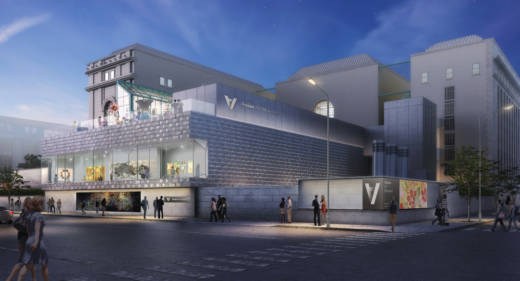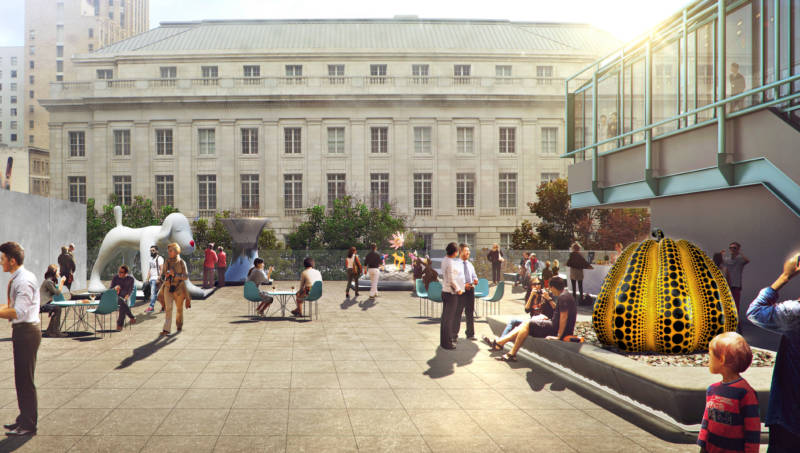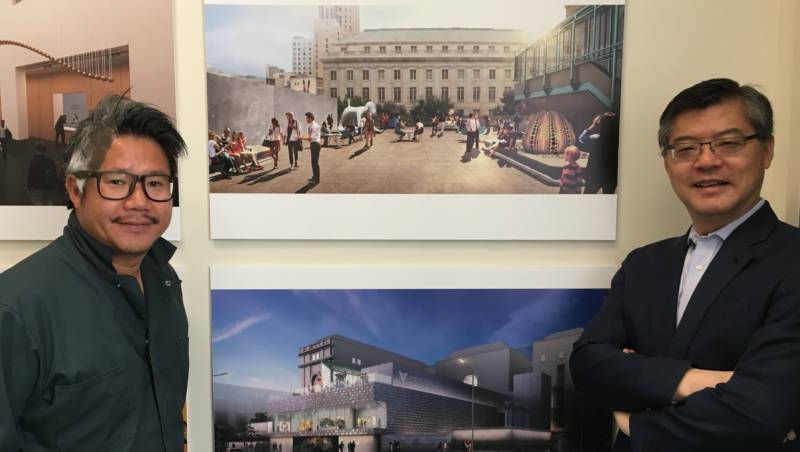San Francisco’s Asian Art museum is moving forward with a $90 million transformation project. The plans announced Tuesday feature a big, new exhibition pavilion with a rooftop terrace.
Asian Art Museum Moves Toward $90 Million Transformation

Asian Art Museum Moves Toward $90 Million Transformation
Many people love the Beaux Arts-style building in Civic Center that houses the Asian Art Museum, with its ornate brick and terra cotta facade.
But museum CEO and director, Jay Xu, acknowledges the shortcomings of the 1917 building — the former site of the San Francisco Public Library — when it comes to presenting art.
“Our existing special exhibition spaces are disconnected,” Xu says. “You have to go through several, separate disconnected rooms in order to finish your exhibition.”

So the museum hired architect Kulapat Yantrasast of the Los Angeles firm wHY to improve the sense of transparency and flow. “The museum must have good circulation, and be easy to navigate,” Yantrasast says. “We also make sure the masterpieces stand out.”
A native of Thailand, Yantrasast is making a name for himself in museum and gallery design. His past credits include the Speed Art Museum in Kentucky, and galleries at the Art Institute of Chicago and the Harvard Art Museum. Locally, he designed San Francisco’s Gagosian Gallery.
The Asian Art Museum’s new $38 million, 13,000-square-foot pavilion is just one piece of the museum’s vision for the future. Xu says the privately-funded expansion plan also includes enhanced programming and education offerings, upgrades to the digital experience, and a $25 million endowment.

Xu says the institution has so far raised around two-thirds of the total $90 million capital campaign through donations, including the largest financial gift in the museum’s history from Silicon Valley entrepreneur Jerry Yang and his wife Akiko Yamazaki. Yamazaki chairs the museum’s boards.
“We came up with this vision to explore Asian art’s relevance in American life and make Asian art and culture an essential part of our life today,” Xu says of the overall development strategy. Xu says he and his team started working on the plan eight years ago, not long after he came on board as executive director.
Bay Area artist Ranu Mukhergee has exhibited work at the museum several times before. She hopes the new pavilion will enhance the institution’s reputation for new work.
“They’ve been making contemporary art shows for a while, but they’re less known for that,” Mukhergee says. “I think it’s an opportunity for them to show their commitment.”
The Asian Art Museum is the latest in the line of large Bay Area arts organizations to undergo major redevelopments. The San Francisco Museum of Modern Art re-opened last year after raising $610 million on an expansion plan which included tripling its gallery space from 70,000 square feet to 170,000 square feet. $305 million went towards construction costs.
The Asian Art museum is expecting to break ground on its new pavilion early next year. The expanded facility is scheduled to open to the public in 2019.



